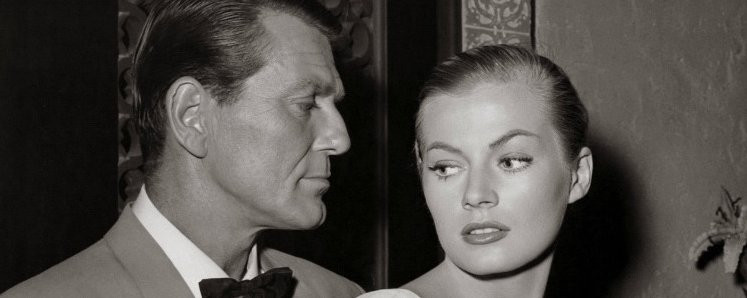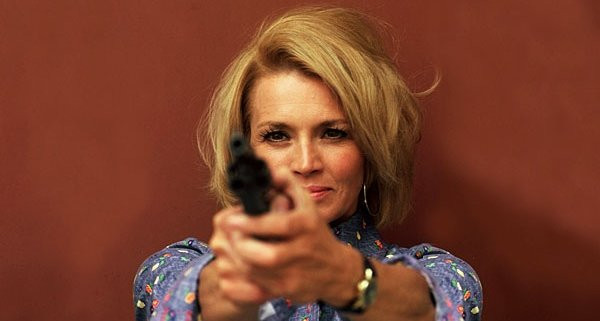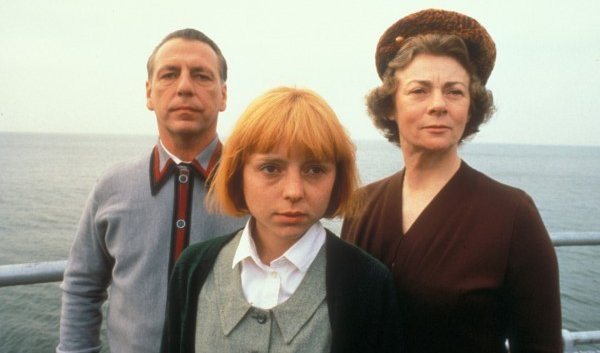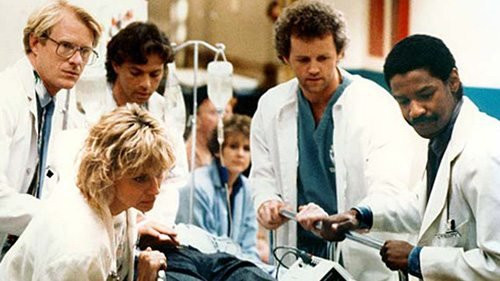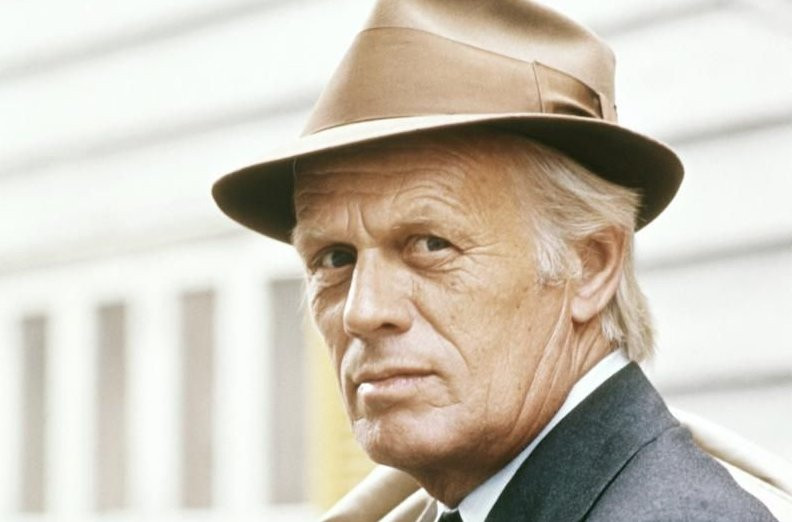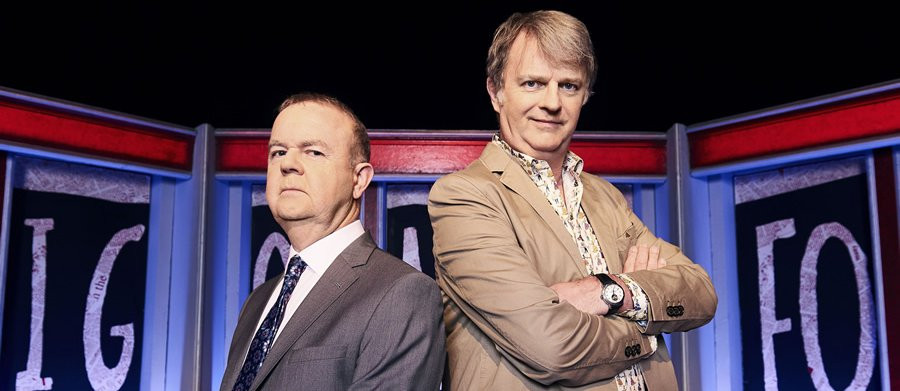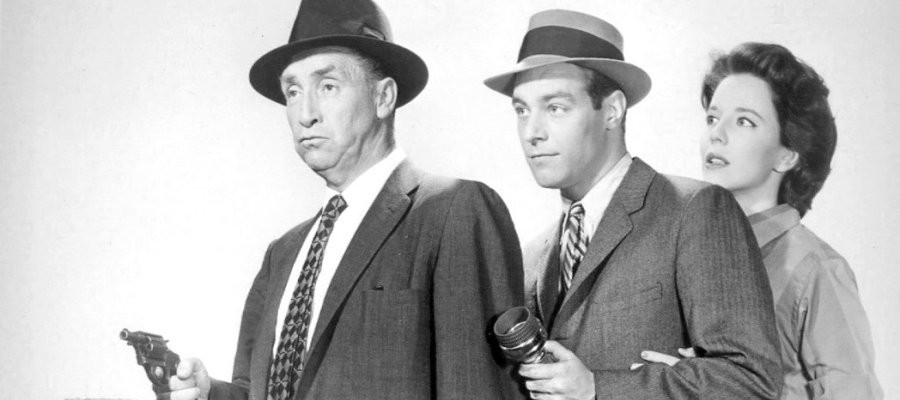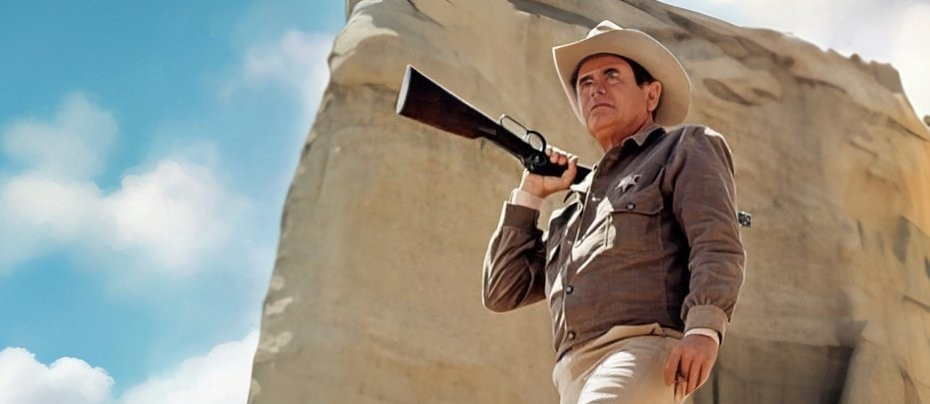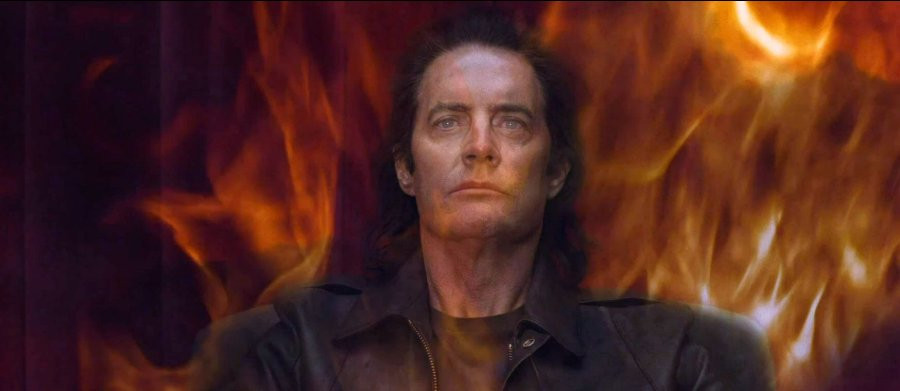
Twin Peaks
1990 - United StatesIn some ways, Twin Peaks was an admirable breakthrough in a world of cookie cutter series television. More like a film than a traditional TV drama, it was moody and dark, filled with vague references, quirky characters and unusual situations. But those same attributes also led to its demise. Many casual viewers who succumbed to an episode found "Peaks" gratingly pretentious, over-produced to the hilt and hard to follow. But the two men behind the show-David Lynch and Mark Frost-would not compromise their vision to fit a mainstream audience. As a result, Twin Peaks lasted less than two seasons. But its status as the ultimate cult series continues to this day.
Film director David Lynch made his name with such works as "Dune"; "The Elephant Man" and the erotic thriller "Blue Velvet". In 1999, he brought his vision of a small Pacific Northwest town and its residents to ABC. Network executives were interested, but they told Lynch to hook up with someone with experience in producing TV drama. Lynch turned to producer-writer Mark Frost, who made his mark behind the scenes of another groundbreaking series, Hill Street Blues.
The pair was given a green light to film a two-hour pilot and a number of episodes. Originally set to air in the fall of 1989, ABC delayed its premiere until the following spring. The pilot aired on Easter Sunday, April 8th, 1990; the first regular episode popped up four days later.
It began with the discovery of a body that washed up on shore. The body was that of 17-year-old Laura Palmer (Sheryl Lee), the homecoming queen of Twin Peaks. Her innocent beauty and striking facial features were wrapped in plastic. Town Sheriff Harry Truman (Michael Ontkean) needed help to solve her murder, so FBI Agent Dale Cooper (Kyle MacLachlan) was called in. Cooper was one of the many quirky who lived or passed through Twin Peaks; he had a habit of using his tape recorder to send reports to his never-seen secretary Diane; and enjoyed the "damn fine coffee" and cherry pie at the town's "Double-R Diner".

As Cooper began interviewing townsfolk and friends, he realized he was no longer in Kansas. He also learned that Laura may not have been as innocent as she seemed to be; in episodes to follow, Cooper learned she had an affair with the biker-poet James Hurley (James Marshall) and the hot-tempered Bobby Briggs (Dana Ashbrook) and was seen at the casino-bordello "One-Eyed Jacks", a short distance north in Canada.
More was going on in Twin Peaks than Laura's murder. Catherine Martell (Piper Laurie) and developer Ben Horne (Richard Beymer) was plotting to take the town's Packard Sawmill from Josie (Joan Chen), the widow of Catherine's ex-husband. There was a love triangle between "Double-R Diner" owner Norma Jennings (Peggy Lipton); the owner of the town's service station Big Ed Hurley (Everett McGill) and Norma's ex-con husband Hank (Chris Mulkey).
David Lynch himself showed up occasionally as Bureau Chief Gordon Cole, who popped up in Twin Peaks to check in with Agent Cooper. And there were many other sidebar plots during Twin Peaks' run, more than can be listed in this short piece. As the search for Laura Palmer's killer went on, Lynch, Frost and the show's writers played with the dramatic genre, with surrealism and ever-stranger events. Agent Cooper began getting his leads through dreams featuring dancing dwarfs and giant people who spoke in epigrams. And let us not forget Margaret (Catherine E. Coulson), who was known as the "Log Lady" because she carried a log everywhere she went!
But the launch was everything a television network and producer could hope for. The pilot was praised by just about every television critic and enough viewers tuned in to make it the fifth most-watched program of the week. ABC's competitors were really on the run over what was developing as a Twin Peaks avalanche. The late NBC entertainment chief Brandon Tartikoff wrote that his wife Lily met David Lynch on a flight from New York to Los Angeles the day after the pilot aired; she congratulated him and mentioned the show's high ratings. Lynch told her that he had not seen the "overnight" ratings for his show. Brandon Tartikoff was stunned; in his autobiography he concluded if Lynch wasn't even interested in how many people watched, "he's even more dangerous than we thought".
Tartikoff need not have worried. ABC slotted the weekly episodes of Twin Peaks against NBC's top-rated sitcom Cheers on Thursday nights. After initially strong ratings, the show began losing audiences as the Laura Palmer mystery remained unsolved and Lynch and Frost kept teasing the audience with hints of a resolution. The season finale in May 1990 was beautifully executed and drew a relatively large audience with the promise that Laura Palmer's killer would be found. But it was not to be.
For many people, it was the last straw. ABC may have felt the same way; Twin Peaks was renewed for the 1990-91 season, but the network moved it to one of the lowest-rated timeslots on television, Saturday nights at ten. The good news for fans was that Laura Palmer's murder was finally solved during the show's second (and last) season. Problem was, with Laura Palmer's murder solved, the writers and producers could find little else to keep even the die-hard fans watching. In the spring of 1991, ABC pulled the show from the schedule; despite floods of cards, letters and even logs and cherry pies to network executives. The final original episode aired on June 10th, 1991.
But it wasn't the end of the Twin Peaks saga. Much as the short-lived comic crime series Police Squad! made a successful move to the cinema in the "Naked Gun" series, "Peaks" spawned a prequel from David Lynch. In the summer of 1992, "Twin Peaks: Fire Walk With Me" was released to theatres. Sheryl Lee starred as Laura once again (most of the original cast was not on hand). This time, Lynch decided to turn back time and relive Laura's life a week before her brutal death. The film fell with a thud faster than a log in the fictional town. Critics rejected it and the film didn't do well in America.
One element of Twin Peaks that was memorable was its hauntingly beautiful theme, "Waterfalls" (also known as the "Love Theme to 'Twin Peaks'"): it was written and composed by Angelo Badalamenti.
For its many fans who still flock to dozens of websites dedicated to the show, Twin Peaks remains a monumental milestone in television history. For the rest of us, it was a daring experiment that just couldn't survive the world of commercial US television. A cult classic, yes. A revolution in television execution, much less so.
Seen this show? How do you rate it?
Seen this show? How do you rate it?
Published on February 9th, 2019. Written by Mike Spadoni (July 2004) for Television Heaven.


